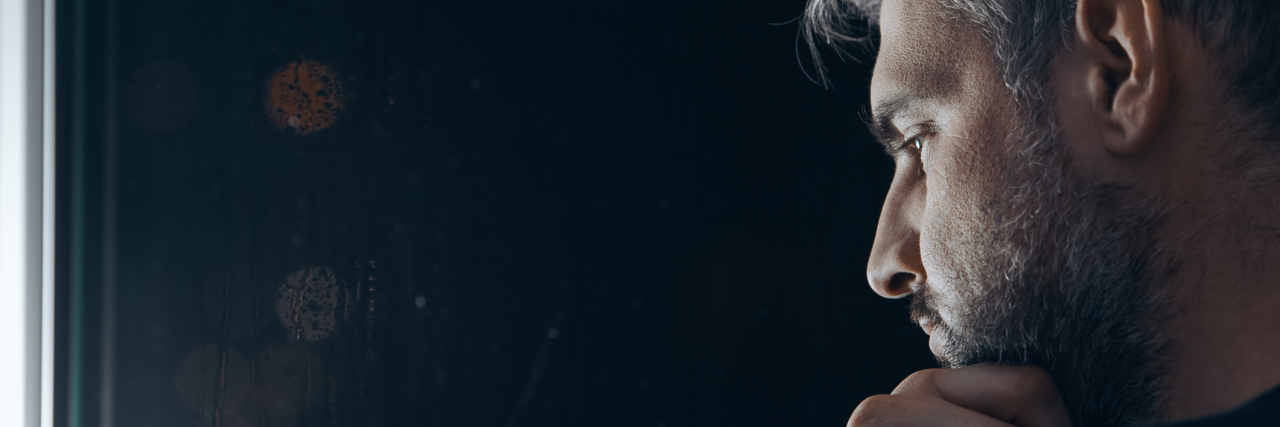Today is the first day of my long-term medical leave. I’m a teacher, but peripheral neuropathy and erythromelalgia have forced me to take all of my sick leave for the remainder of the school year. In addition, my school district has a policy that allows me to take one year of unpaid leave next year. I need it, but it has taken me a long time to accept this reality.
I have struggled with chronic pain every day for what seems like an eternity. It’s really more like a series of eternities with each day being an endless, fiery hell.
The pain scale has become meaningless to me. How can you measure your pain when it relentlessly stabs, burns, tingles, swells, shocks, and aches? How do you tell someone that you pray your pain would come down to a 10 without seeming like you’re exaggerating?
With enflamed soles, I couldn’t teach standing up. With stinging feet, I couldn’t teach sitting down. With legs that felt like sandbags, I needed a cane to help me walk and keep my balance. Throughout this school year, I took off my shoes and socks and taught barefoot because of the burning. Every step felt like running a marathon on hot coals. However, pain was not my only battle.
It has taken over a year to get a diagnosis, but not for a lack of trying. Thankfully, I have been blessed with caring doctors and nurses who went the extra mile to help me. They have listened sympathetically and sought a correct diagnosis and treatment to relieve my struggles. Nevertheless, the journey to receiving a diagnosis has been agonizing.
Between my primary care nurse practitioner, two neurologists, pulmonologist, dermatologist, and palliative care specialist, we have gone through multiple diagnoses and potential causes. First was multiple sclerosis, but the MRI came back negative. Then it was small fiber neuropathy possibly caused by sarcoidosis. When that didn’t pan out, the diagnosis became idiopathic small fiber neuropathy.
All of these false starts costed time, money, and hope. Now, after several months and thousands of dollars of tests, we finally landed on the diagnosis of peripheral neuropathy and erythromelalgia. Of course, as I’ve learned, this is all subject to change.
Even as I write, the pain coupled with doctor visits, weening off one set of meds so I can try others, waiting for test results, and constant uncertainty brings intense emotional distress that exacerbates my diagnosed depression and anxiety.
Can’t anyone help? Can’t anyone say, “This is what’s wrong, and this is how we can treat it?”
Headed into this school year, I feared the possibility that I wouldn’t finish. Now my fear has become a reality. I fought my struggles every day, and the intense pain even caused me to lose the ability to stand on some days. I promised myself, though, that I wouldn’t quit. I would keep on working until they dragged me out.
My desire to force my body into submission affected my family. They help me stand, walk, and get dressed. They watch me lay on the couch, exhausted and unable to roll over. And until today, they knew I would go back to work.
Why would I be so harsh on myself and them? I’ve taught several students with disabilities, and I’ve worked to successfully accommodate their needs. I never judged them, looked down on them, or considered them a burden.
Why, then, did I have such trouble coming to terms with my own needs?
Shortly after returning from winter break, a close friend and colleague gently told me that my pride was getting in the way of my health and my family’s wellbeing. She said that I did not want to admit that I was becoming disabled. My ego was causing me to go on a forced march when my body could not cooperate. My desire to be someone other than who I am brought unnecessary harm to me and my loved ones.
This was hard to hear, but I needed that straightforward talk in order find the courage to make a necessary decision. I made an appointment with the human resources department to ask about taking some time off. Once again, I found a caring and supportive staff that guided me through the Byzantine process of applying for medical leave and disability.
My application for taking this year and next year off was approved almost immediately, and now I have a year an a half to focus in my health – for my good, the good of my family, and the good of any students I may have if I can ever go back to the classroom.
I have struggled to realize that my worth as a person cannot be measured by how much I work. Being disabled and unable to work does not mean I’m worthless. Not awaking every morning to go to a job does not make me lazy. Needing to take care of myself doesn’t suggest selfishness, weakness, or apathy. Instead, to confess that I needed help took courage, honesty, and strength.
So now what do I do? Just sit around the house in my pajamas? Take a nap? Do nothing? Well, yes. At least for today and maybe for a while to come. I need rest, and I might not be able to work at my chosen profession for the rest of my life. But this is the new me. This is who I am.
As I start medical leave, I’m resting physically and emotionally. I’m welcoming the realization that I cannot do what I always have done. My pain has become my teacher as I learn deep down that I truly am worth far more than what I do for a living.
Getty Image by KatarzynaBialasiewicz

